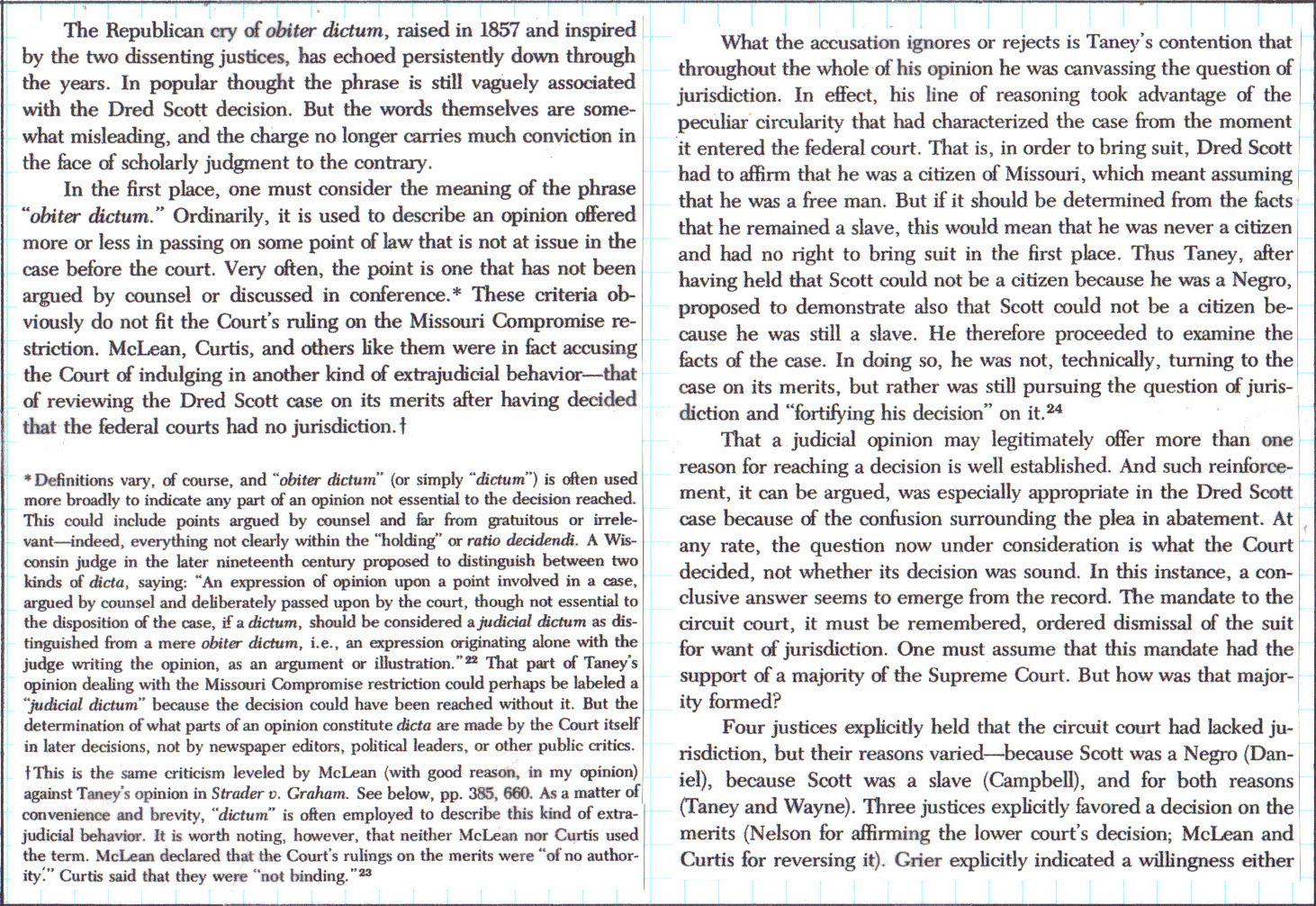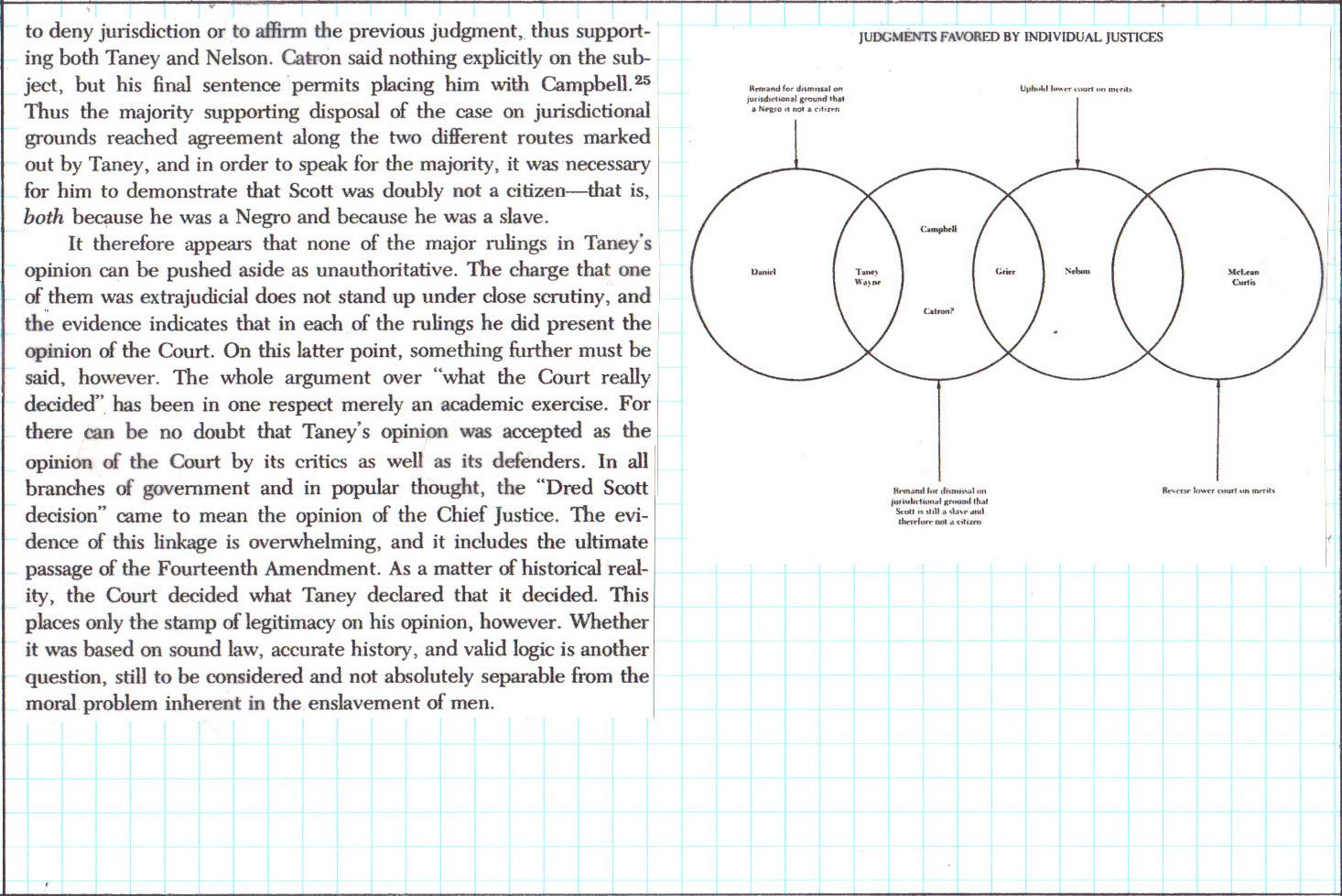

Don E. Fehrenbacher, The Dred Scott Case: Its Significance in American Law and Politics" (1978)


Don E. Fehrenbacher, The Dred Scott Case: Its Significance in American Law and Politics" (1978)
It is amazing to me that not that long ago in historic time serious people and the highest court in the United States were having these discussions about a human being. It certainly supports the argument that the institution of slavery dehumanized its proponents too.
Seems to me, the closer we look at Dred-Scott, the more confusing it gets.
That may help explain why Lincoln himself took months to seriously comment on it -- what does it really say & mean?
I'd suggest it was the culmination of decades of pro-slavery efforts to end the interminable debate by deciding, once and for all, that slavery was constitutionally lawful anywhere, everywhere and under all conditions within the United States & territories.
How valid its specific rulings may or may not have been is irrelevant to its purpose: to end the debate by making slavery lawful, period.
As such it not only satisfied pro-slavery citizens, it also set for them a new standard of what was, or was not, tolerable in discussions: slavery was constitutional & lawful, any suggestions otherwise were not tolerable.
This meant that Republican calls for Federally enforced abolition in western territories were not constitutionally acceptable in the minds of those pro-slavery.
Consider: In 1784 Thomas Jefferson himself proposed abolition in the Northwest Territories, with no resulting threats of secession or war from slave holders.
But by 1860, the Supreme Court's Dred-Scott ruling made such ideas "unconstitutional" and the Republican Party's platform of restricting slavery in western territories became grounds, in pro-slavery minds, for drastic actions.
At the same time Dred-Scott outraged anti-slavery citizens by reversing what they had grown to see as a slow but inevitable progress towards nation-wide abolition.
It turned many Northerners away from consensus Democrats like Pennsylvanian & President James Buchanan and towards the expressly anti-slavery party -- Republicans.